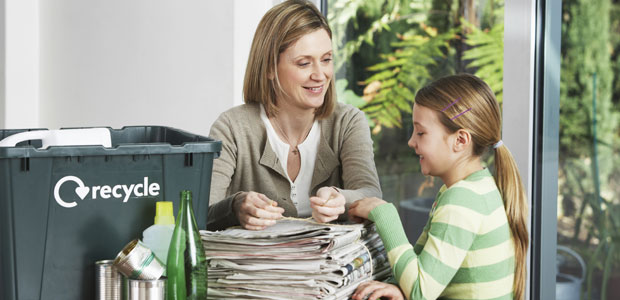Advertisement
It’s Waste Reduction Week!
This week, from October 20 to 26, Canadians are celebrating Waste Reduction Week! Get your green on by finding new ways to upcycle, recycle, or donate old items—at home, in the office, or at school. At home Did you know that it’s possible to recycle almost every part of a computer? And, luckily, anyone with … Continued

This week, from October 20 to 26, Canadians are celebrating Waste Reduction Week! Get your green on by finding new ways to upcycle, recycle, or donate old items—at home, in the office, or at school.
At home
Did you know that it’s possible to recycle almost every part of a computer? And, luckily, anyone with an old Windows 98-running dinosaur has countless opportunities to make that happen. Plus, most provincial recycling programs accept those old computers cluttering up the garage … along with dust-collecting printers, electric instruments, talking stuffed animals, and those pesky single-use plastic bags given out by so many stores.
Meanwhile, gently used clothes can be dropped off at a local nonprofit, and pre-dog-eared books and magazines can be passed along to any number of charities, secondhand bookstores, or (depending on the content) neighbours with young readers.
At the office
Reducing workplace waste can be as simple as adding a compost bin to the lunch room, taking the company’s name off of junk mail lists, using computer files as opposed to physical ones, and replacing single-use paper cups with reusable mugs.
At school
Now’s a great time to turn to tiffins for all of your sandwich-packing needs and to swap those juice packs for sturdy metal water bottles.
And what about getting the whole classroom or, even better, the whole school involved? Creating a recycling club can help teach kids what can go in the blue bin, while setting up clothing and book exchanges can be another great way to get rid of no-longer-loved household items—and a chance to pick up something new-to-you!
This week, from October 20 to 26,[1] Canadians are celebrating Waste Reduction Week! Get your green on by finding new ways to upcycle, recycle, or donate old items—at home, in the office, or at school.
At home
Did you know that it’s possible to recycle almost every part of a computer?[2] And, luckily, anyone with an old Windows 98-running dinosaur has countless opportunities to make that happen. Plus, most provincial recycling programs accept those old computers cluttering up the garage … along with dust-collecting printers, electric instruments, talking stuffed animals, and those pesky single-use plastic bags given out by so many stores.[3]
Meanwhile, gently used clothes can be dropped off at a local nonprofit, and pre-dog-eared books and magazines can be passed along to any number of charities, secondhand bookstores, or (depending on the content) neighbours with young readers.
At the office[4]
Reducing workplace waste can be as simple as adding a compost bin to the lunch room, taking the company’s name off of junk mail lists, using computer files as opposed to physical ones, and replacing single-use paper cups with reusable mugs.
At school
Now’s a great time to turn to tiffins for all of your sandwich-packing needs and to swap those juice packs for sturdy metal water bottles.
And what about getting the whole classroom or, even better, the whole school involved? Creating a recycling club can help teach kids what can go in the blue bin, while setting up clothing and book exchanges can be another great way to get rid of no-longer-loved household items—and a chance to pick up something new-to-you!
[2] This is from my interview with FreeGeek President Nigel Cornwall for the Planned Obsolescence article.
<!–[if gte mso 9]> <w:Ls




